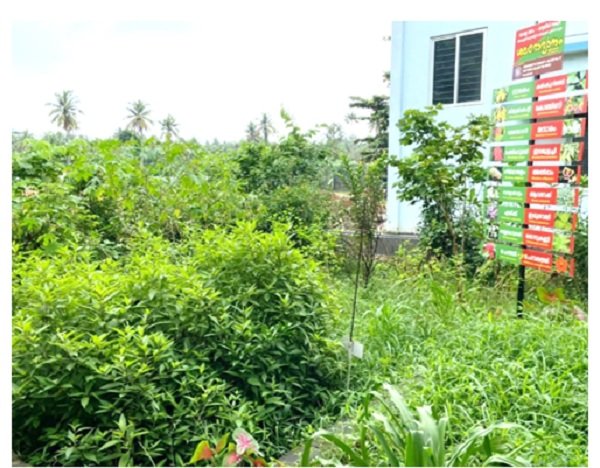1.Well equipped UG Lab and PG Lab
A well-equipped laboratory is essential for providing students with hands-on learning experiences, fostering scientific inquiry, and preparing them for careers in zoology and related fields.
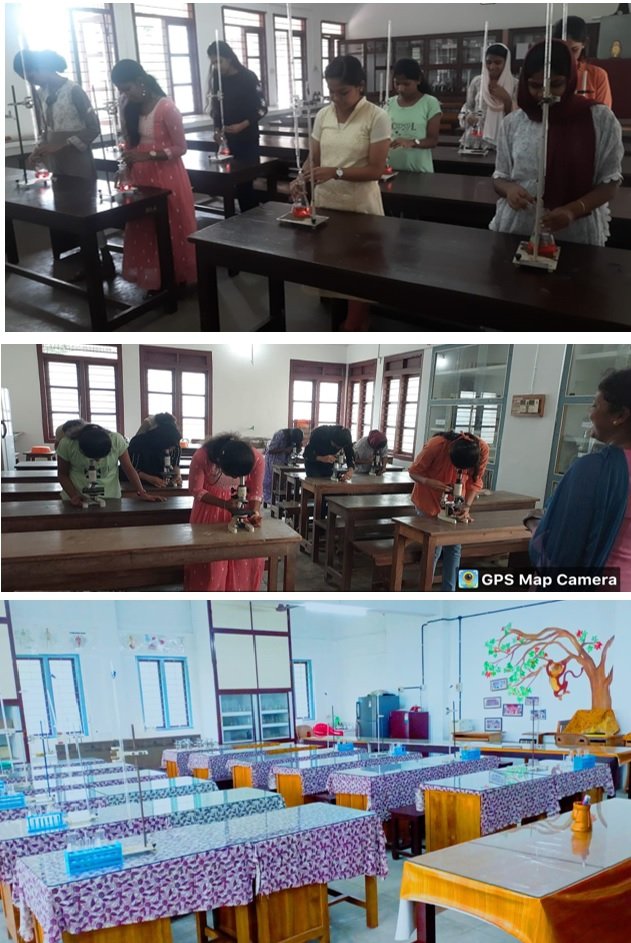
2. ICT enabled Learning
A blend of traditional teaching and ICT resources can provide a well-rounded learning experience in a college’s Zoology department. He department has Youtube channel which delivers multimedia content such as video lectures that explain difficult concepts of zoology.
Video conferencing tools like Zoom / Googlemeet is being used for virtual lectures, guest speakers, alumni and collaborations with other institutions.
Interactive simulations and virtual labs that replicate experiments and biological processes such as physio X, online virtual lab are being used. These can help students understand complex concepts in a controlled, digital environment.
Learning Management Systems (LMS) or online platforms are used where students can access course materials, assignments.
Projector and screen for power-point presentations
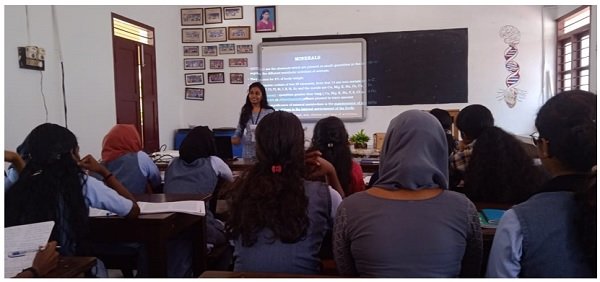
3. Zoological Museum
The Zoology Museum of Mar Thoma College for Women, Perumbavoor, a captivating treasure trove of the natural world, where visitors can embark on a fascinating journey through the rich tapestry of Earth’s diverse, has been a prestige of the whole College.
The Zoology Museum boasts a vast and diverse collection of specimens, ranging from the tiniest microorganisms to the largest mammals, offers visitors of all ages an opportunity to explore the wonders of the animal kingdom and gain a deeper appreciation for the natural world. The specimens are classified systematically and arranged in order. The Zoology Museum is serves as a teaching aid in the understanding of topics such as biodiversity, conservation, and the role of zoology in our understanding of life on Earth.
Besides, we have a well-documented specimen catalogue, campus diversity registers (bird diversity, floral diversity, butterfly diversity registers) and a display of dried and preserved insects of the campus.Come, explore, and be inspired by the wonders of Zoology.
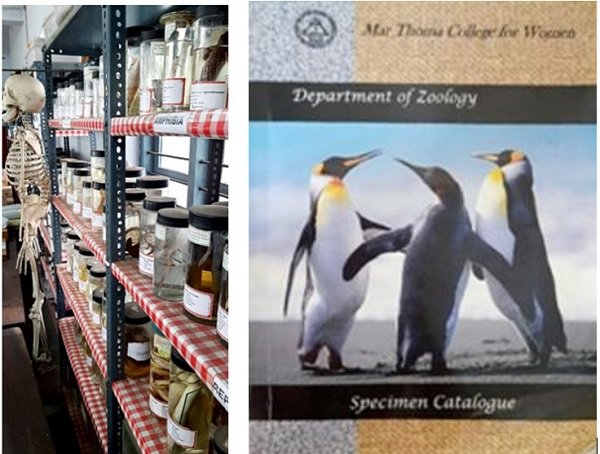
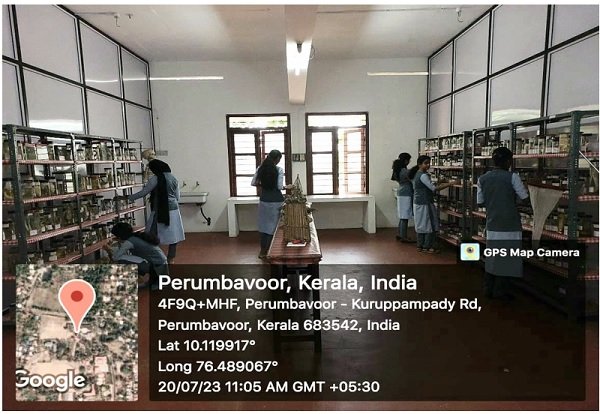
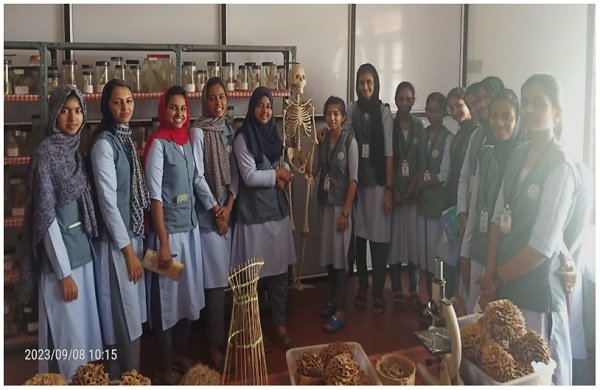
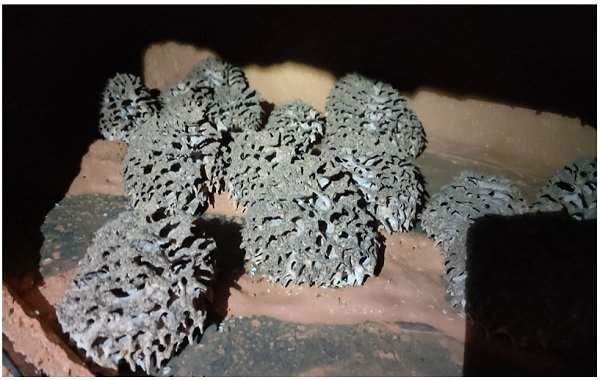
4. Vidyavanam
The Department of Zoology in association with the Social forestry wing of the Kerala Forests and Wildlife department launched a “Vidyavanam” project in the College for the benefit of students. Using the Myawaki method a barren piece of land was converted into a miniature forest named Vidyavanam. These forests encourage new biodiversity and an ecosystem which in turn increases the fertility of the soil.
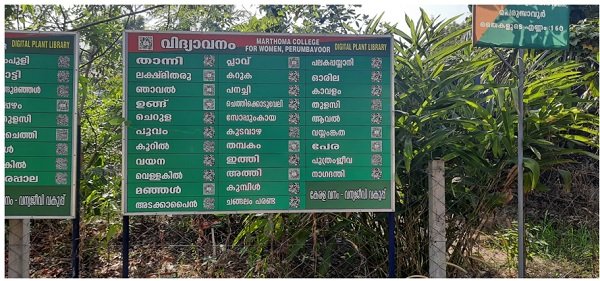 5. Butterfly garden
5. Butterfly garden
The department of Zoology maintains a butterfly garden which is specifically designed and cultivated to attract and support butterflies. These gardens are typically planted with a variety of nectar-rich flowers, host plants for caterpillars, and other elements that provide food and shelter for butterflies at various stages of their life cycle. The use of pesticides is totally avoided as they can harm both butterflies and their caterpillars. These gardens contribute to the conservation of butterfly species and also aid students in learning biodiversity.
